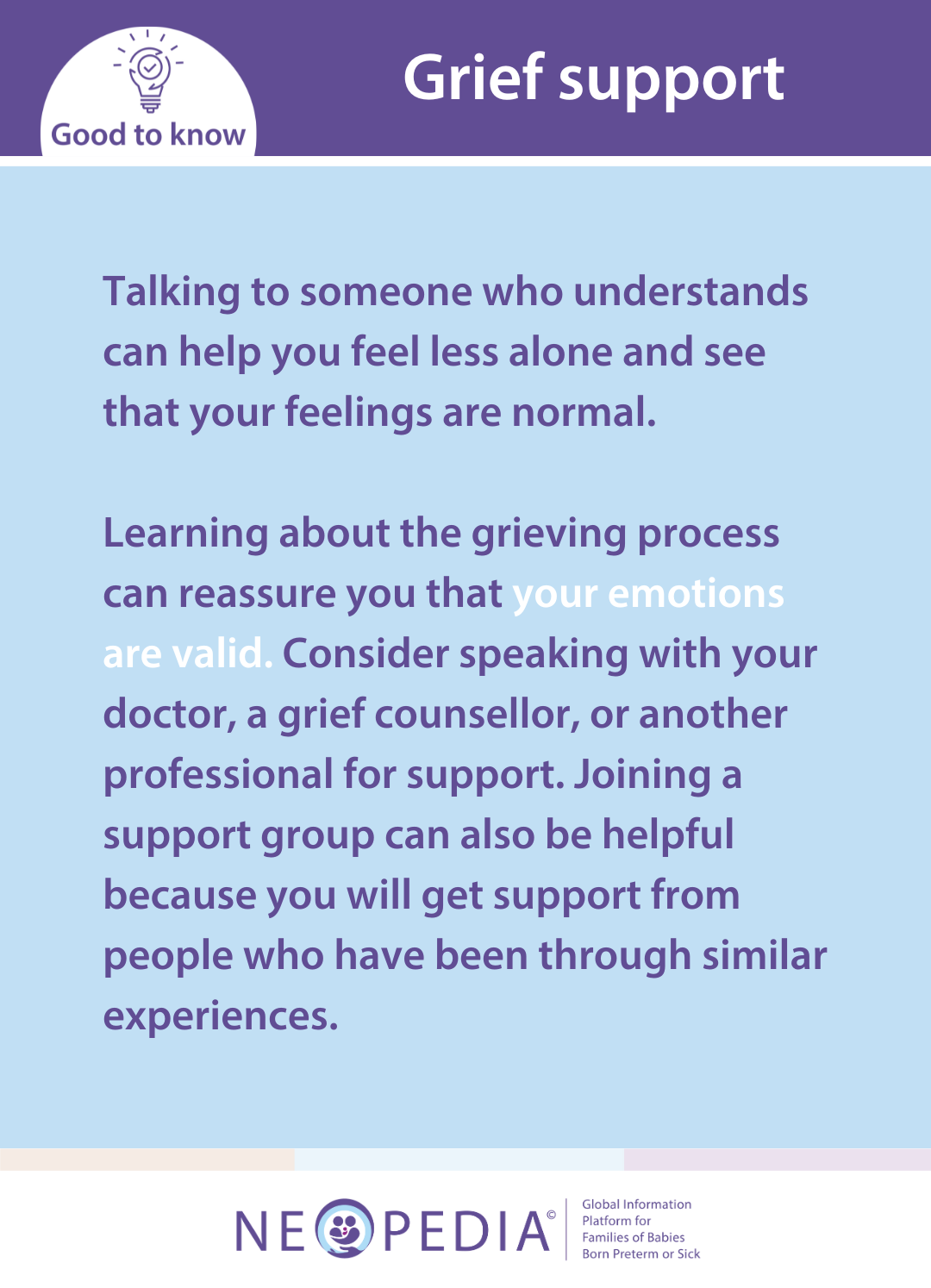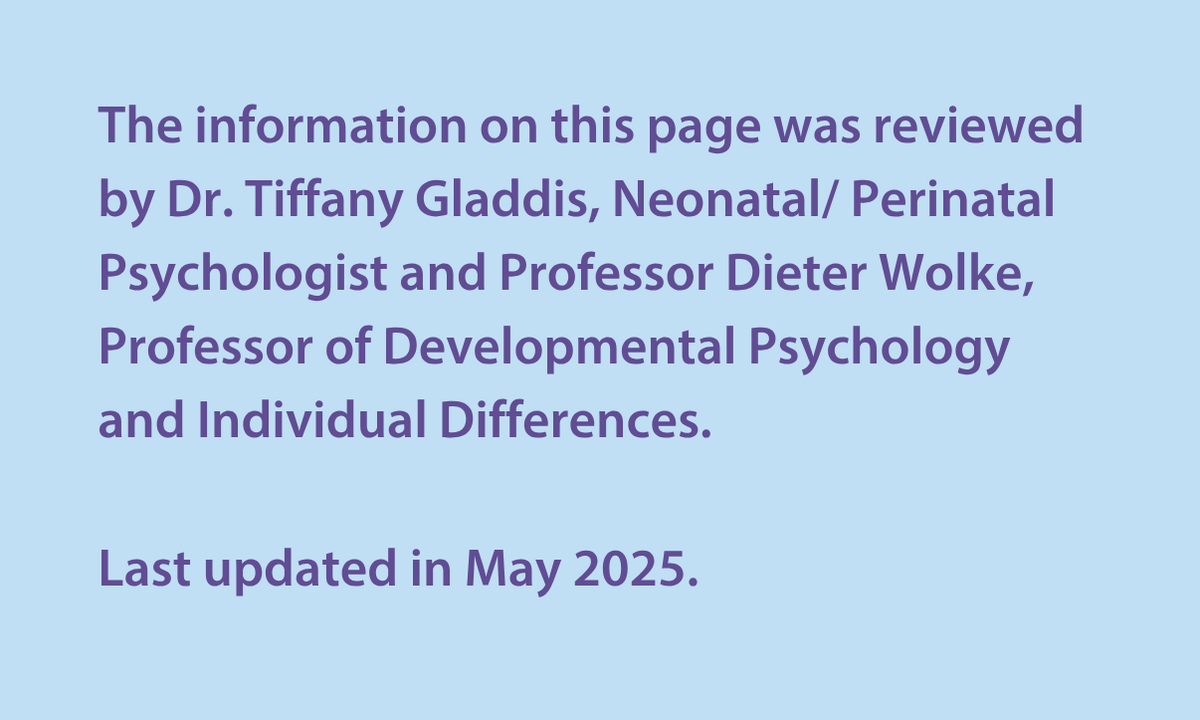
We send our heartfelt sympathy to you and your family if you are reading this page because you have lost a baby or babies.
Every parent reacts differently to death, whether it is a miscarriage⍰, stillbirth⍰, or losing your baby during or after birth. Parents of multiple babies may have challenges like grieving more than one baby, different causes of death, intensive care, surgeries, treatment decisions, or preparing to bring a surviving baby home.
Your grief might feel overwhelming, making it hard to imagine how you will manage. The intense emotional and physical pain can be scary, and mothers might also experience additional physical issues such as reduced milk production. While the grieving process will unfold naturally, seeking help is encouraged. It is normal to experience complex emotions, especially if you have another baby or babies who survived. These emotions can exist in parallel even when they seem to conflict with each other.
At first, you might find it hard to believe that your baby is gone, feeling like you are in a nightmare. You might feel overwhelmed by your loss and think that no one understands what you are going through. As reality sets in, the pain may get worse just when others think you should be feeling better. Parents often blame themselves and feel guilty, thinking they should have prevented the loss of their child. You might feel anger towards yourself, or towards your partner and loved ones, and even towards the healthcare providers who cared for your baby.
In many cases, fathers find themselves in the role of being the organizer and source of strength while support is directed primarily toward mothers. However, as time passes many fathers or partners may experience flashbacks and find it difficult to cope.
Some parents grieve openly and share their feelings, while others keep their emotions private. Grief is a natural response, and everyone copes in their own way. There is no set time for grieving and no right or wrong way to do it. Most parents will continue to grieve in different ways for the rest of their lives. It can be especially difficult when couples who have lost a baby or babies grieve in different ways; some may want to talk about their feelings, while others might not, which can lead to frustration, misunderstandings, and put strain on partner relationships.
A full explanation may not always be possible, but in some cases, the care team can provide information that may be helpful if you have a future pregnancy.
Inviting family members to say goodbye and share memories of your baby or babies can be a meaningful way to honor their lives and support the grieving process. Such symbolic and spiritual activities are important and can include a final baptism or smaller gestures like opening a window or letting a feather fly from a windowsill. These practices may vary by region based on tradition and religion.
It could be important to find out if your babies were identical or fraternal, because this could help you imagine them better, especially in the weeks and months to come.
If you have multiple babies, take photos of them together if you can, including images of them being held by you. Dress them in outfits you choose. Recording videos is also recommended, and you can even ask for any ultrasound recordings of your baby or babies if they exist. You might also create hand and feet prints or save a piece of hair. Another meaningful way to honor your time with your baby or babies is by bathing them and dressing them in special clothing.
Giving names to your baby or babies can be meaningful and help with grief. Giving your child a name solidifies that they existed and can make it easier to reference them for a lifetime. Some parents keep the names for future children, while others use them and create variations for later siblings.
Grief can put strain on the partner relationships. Reach out for partner counselling to help understand different grief reactions.
Each parent's experience is unique, and every situation is different. Losing a baby can cause deep and long-lasting grief that many do not fully understand.

